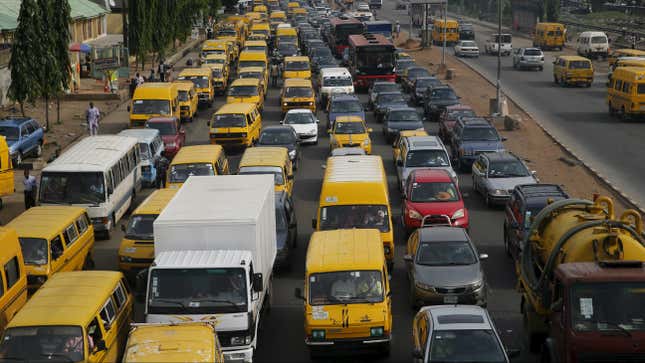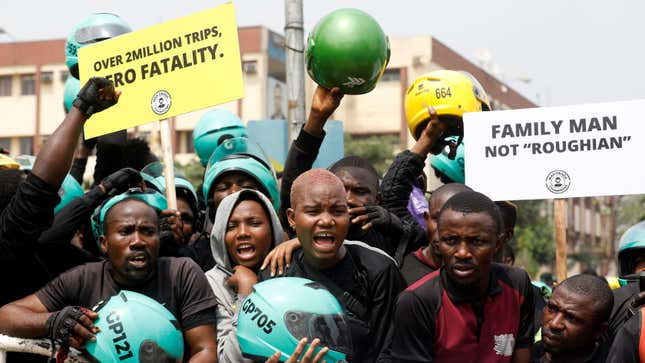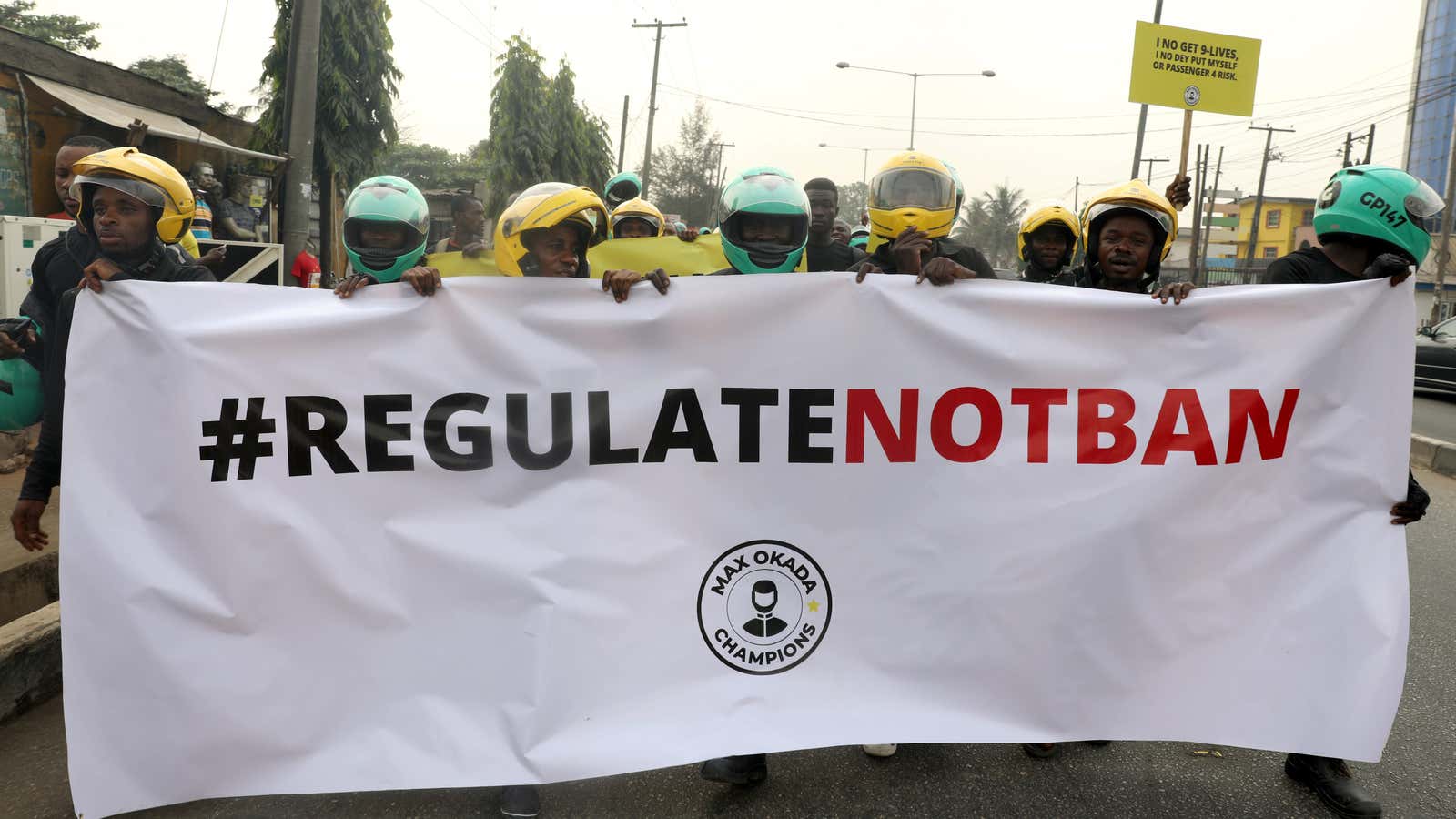The first week of the ban on commercial motorcycles and tricycles in Lagos has not gone exactly to plan.
While state authorities say the goal is to reduce traffic congestion and improve safety citing claims of high accident rates among commercial motorcycles (locally known as okada), its failure to provide ready alternatives has largely left millions of residents stranded.
With motorcycle and tricycle operations now banned in major residential and business hubs, including Ikeja, the state capital, residents are markedly short of options for commuting. Radio presenter Mariam Peters says her daily commute to work now includes a 15-minute trek to the nearest bus stop in Lagos’ stifling 90°F (32°C) weather—a reality thousands of Lagos’ residents have shared on social media, radio call-in shows and TV news reports this week.
To be fair, while they have become necessary fixtures in the city, okadas are not much loved. With so many unregulated motorcyclist drivers, they have a reputation for flouting traffic laws and reckless riding, often resulting in damage to cars and more serious accidents, has provided the state with a legitimate case for looking to curtail their operations. The problem is, other than buying a car for Lagos’ already congested road network, there are next to no “last mile” public transit options in a sprawling city which adds thousands of new residents every month.
The state government says it will provide buses and ferries to shore up gaps as it looks to diversify transport options in the city. But even that is unlikely to be enough especially for short-distance trips in business districts or across congested neighborhoods where motorcycles and tricycles typically have the most utility.
Much of local reaction has been critical of the government not just for the ban but also for its failure to test-run possible alternatives before putting a ban in place. And, in some parts of the city, tension has spilled over resulting in protesting okada riders clashing with local police.

The problems experienced this week are unlikely to be teething problems either as motorcycles and tricycles have, overtime, become mainstay features of Lagos’ transport system due to gaps that exist. Quite simply, existing state-owned bus and ferry transport services alongside private operators of commercial transport buses cannot cater to the transport needs of the city’s 21 million residents. A state-funded light rail transport system first announced in 2015 is not expected to be operational until 2022.
Million-dollar questions
Well-funded motorcycle-hailing startups have also been caught in the cross-hairs of the ban despite only deploying motorcycles that match the state’s transport laws. Collectively, Max.ng and Gokada raised over $12 million in funding last year alone while OPay, a payments service which received $170 million in funding mainly from Chinese investors last year, has bankrolled the aggressive growth of ORide, its bike-hailing app.

But the new regulatory stance in Lagos now puts question marks over the operations and future of these companies. Gokada has already laid off a majority of its staff and switched up its business model. For its part, Max.ng says its drivers now operate only in areas unaffected by the ban.
However Guy Bertrand Njoya, Max.ng’s chief financial officer, admits riders’ ability “to generate income is now curtailed” as they can no longer operate in areas where “most of business is done and most rides are taken.” While the company also operates in three other Nigerian states, Lagos is by far its biggest market and is home to about half of its entire pool of motorcycle riders. The regulatory concerns in Lagos could see the company accelerate plans for expansion within and outside Nigeria, Njoya admits.
But in the meantime, Max.ng which also operates a tricycle-hailing service and a motorcycle-based logistics arm, remains focused on finding a resolution in its most important market. “We’re talking with government about revising the decision and demonstrate to them the work we have done and how we operate delivers the outcome they seek in security and safety,” Njoya tells Quartz.
But, so far, there is little to suggest the state will walk back its decision. At a public event on Wednesday (Feb. 5), Lagos governor Babajide Sanwo-Olu insisted the state will “sustain” the ban.
Sign up to the Quartz Africa Weekly Brief here for news and analysis on African business, tech and innovation in your inbox
